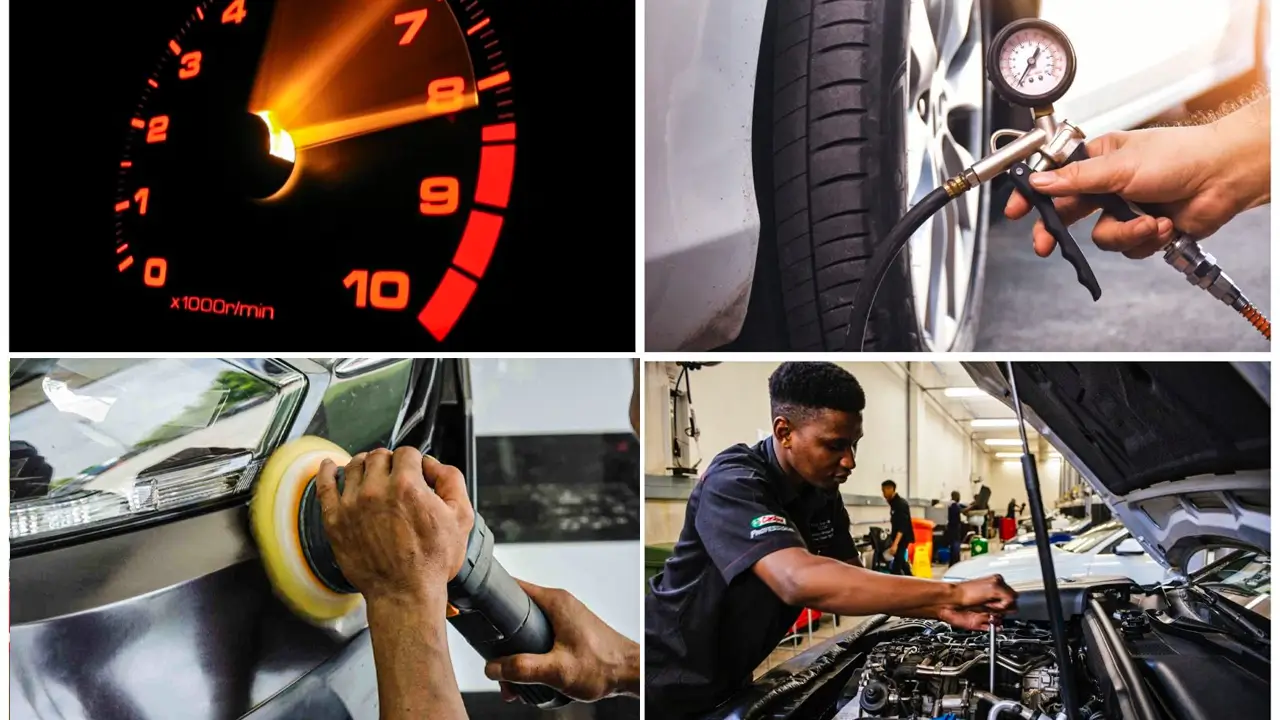Increasing gas mileage is dependent on car maintenance. Your car will operate more effectively and use less gasoline if you take regular care of it. Here are some concrete steps you may take to improve the fuel efficiency.
Boost Your Gas Mileage: Maintenance Tips for Better Fuel Economy
Regular Oil Changes
Maintaining decent gas mileage requires routinely changing your car’s engine oil. Old oil gets thick and gritted, which makes the engine work harder by increasing friction. Fresh oil improves fuel efficiency by making the engine run more smoothly. Depending on the type and model of your vehicle, changing the oil should be done every 3,000 to 5,000 miles.
Fuel System Maintenance
The use of clean fuel significantly improves fuel economy. Carbon deposits may accumulate in the injectors over time, resulting in ineffective combustion and inadequate fuel atomization. Restoring appropriate fuel flow and increasing mileage can be achieved by using fuel additives or by having the fuel system professionally cleaned.
Spark Plug Inspection
Misfires brought on by damaged or malfunctioning spark plugs can result in poor combustion and decreased fuel economy. Spark plugs should be inspected and changed as necessary, usually every 30,000 miles. As a result, the engine will burn fuel more efficiently, improving gas mileage.
Drive Smoothly
Your driving technique has a direct impact on how much fuel you use. Steer clear of forceful braking and fast acceleration. Aim for moderate, smooth acceleration instead. On highways, keep your speed constant and, if you can, use cruise control. By doing these things, you can lessen the load on your engine and increase fuel efficiency.
Reduce Excess Weight
The engine must exert more effort to propel the car when it is heavier. Get rid of everything extraneous from your car, especially anything hefty. When not in use, take off any roof racks you may have because they increase air resistance and reduce fuel economy.
Aerodynamics
Keeping your car aerodynamically efficient can also help improve mileage. Driving with windows down, especially at high speeds, increases drag, which reduces fuel efficiency. Additionally, roof-mounted cargo carriers drag significantly. If possible, use the trunk or interior of the vehicle for storage.
Use the Right Fuel
Make sure the fuel you’re using is appropriate for your vehicle. Although some drivers might use higher-octane fuel, most vehicles don’t need it unless the manufacturer specifically recommends it. Using the recommended gasoline ensures engine performance and fuel efficiency.
Regular Engine Tune-Ups
Regular maintenance on an engine helps prevent any issues that could lower fuel efficiency. During a tune-up, the technician will check and adjust the ignition timing, air-fuel mixture, and exhaust. If your car’s engine is tuned, it will run at peak efficiency and obtain the most mileage.
- Audi GT50 Concept: A Loud Reminder of Why Car Enthusiasts Fell in Love With Audi
- Nearly 30% of UK Drivers Believe Car Tax Should Be Based on Mileage — Survey
- Why Planes and Boats Escaped the Luxury Tax But Cars Didn’t
- Australia’s Headlight Confusion: Authorities Warn Drivers After Viral $250 Headlight Rule Goes Wild Online
- 2025 Hyundai Venue Facelift Launched in India – Full Details, Variants, and Price
Check the Fuel Cap
Fuel evaporation from a loose or broken fuel cap might lower fuel efficiency. After refueling, always make sure the fuel cap is firmly in place. To stop fuel leaks and preserve maximum fuel economy, replace the cap if the seal is compromised.
Monitor Your Driving Speed
Speeding too much can significantly lower fuel economy. Your gas car mileage can be increased by about 10% if you drive at 65 mph instead of 75 mph. Your engine has to work harder as you travel faster because it faces higher air resistance. Maintaining speed restrictions and driving at moderate speeds can help you save fuel.
Use Synthetic Oil
Engine performance and fuel efficiency can be improved by switching to synthetic oil if recommended by the manufacturer. Because synthetic oils reduce engine friction and flow more freely, the car performs better. This could lead to better gas mileage over time.
Replace Timing Belt
Fuel efficiency and engine performance can both be impacted by a worn timing belt. Although it’s not necessary to replace the timing belt every year, doing so at the suggested intervals—typically between 60,000 and 100,000 miles—guarantees smooth and effective engine operation.
Maintain the Transmission
Your automobile will run more smoothly and use less fuel if the transmission is kept up to date. Verify the level of the transmission fluid and refill it if necessary. Avoid riding the clutch if your automobile has a manual transmission because this might diminish economy and incur needless wear.
